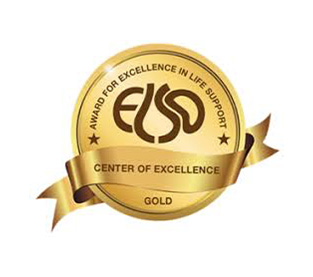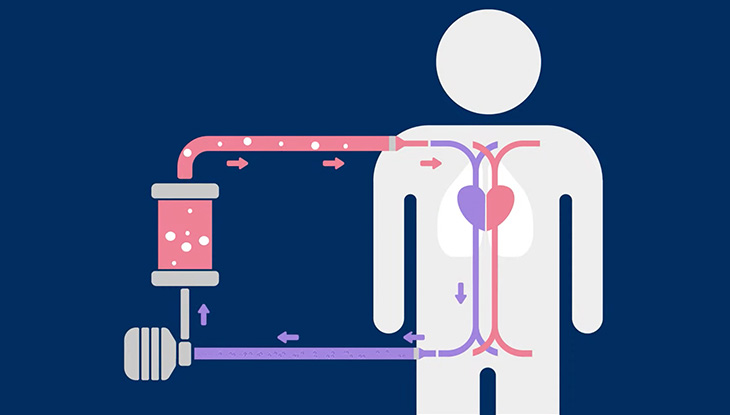Pediatric and Cardiac Intensive Care Unit
Extra-corporeal life support (ECLS)

Without the uninterrupted functioning of a person’s heart and lungs, a person cannot survive. Severe damage to these organs strains their normal functioning and capacity and may result in further injury. Our extra-corporeal life support (ECLS) program is designed to treat the sickest of patients for whom resting and replacing the function of the heart and/or lungs is necessary to their survival. The application of ECLS can replace the function of the lungs and/or heart to allow these organs the time to heal. In general, ECLS is reserved for those patients who have at least a fifty percent chance of dying without using this technology.
At UC Davis Children’s Hospital, ECLS is provided by a team of physicians, nurses and perfusionists trained to provide extra-corporeal life support, and we are proud that our program is a member of the national Extracorporeal Life Support Organization (ELSO). All patients on ECLS have a bedside nurse dedicated to the care of the patient and a second specially trained nurse committed to the management of the ECLS machine. A physician trained in ECLS technology manages or co-manages each of the patients on ECLS and a UC Davis Medical Center perfusionist is available 24/7 to assist with the equipment and management of all patients.
In 2024, UC Davis Medical Center received national recognition for providing exceptional care to patients on life support and received the Gold Level ELSO Award for Excellence in Life Support from the Extracorporeal Life Support Organization (ELSO) for its Extracorporeal Life Support Program. The program provides lifesaving support for failing organ systems in infants, children and adults.
Our ECLS machines were funded in part by Children’s Miracle Network donations. Learn more about what the Children’s Miracle Network does to help kids at UC Davis Children’s Hospital.


What is ECMO? - Lifesaving Support for Failing Organs
ECLS is frequently used in neonatal patients with severe lung disease. Neonatal conditions potentially requiring ECLS include infants suffering from persistent pulmonary hypertension of the newborn, infants with meconium aspiration, and those born with congenital diaphragmatic hernia.
Persistent pulmonary hypertension of the newborn is a failure of the newborn’s circulatory system to transition from dependence on the placenta to oxygenate the blood to a dependence on the newborn’s lungs. ECLS provides the time necessary for the body to complete the transition to using the lungs to oxygenate the blood.
Meconium aspiration syndrome is the result of infants taking meconium, the first infant stool, into their lungs before or during delivery. The meconium may block the infant’s airway or otherwise affect adequate delivery of oxygenated blood to the bloodstream.
Congenital diaphragmatic hernia (CDH) is a failure of the neonate’s diaphragm to fully develop and separate the contents of the abdomen from those in the chest. Patients with CDH often have their stomach, intestines and other abdominal organs in the chest preventing the normal development of the lungs. ECLS provides time for the lungs to mature and for the pediatric surgeons to repair the defect in the diaphragm.
Children treated with ECLS in the Pediatric and Cardiac Intensive Care Unit (PICU) fall into several categories, including children who suffered severe trauma, patients with severe pneumonia or infections (sepsis), and those with acquired heart disease (cardiomyopathy and myocarditis).
Trauma patients whose heart and lung function have been affected by their injuries may be placed on ECLS due to the severity of their injuries or to allow their organs to rest following surgery.
Children with severe pneumonia or lung disease due to sepsis may require ECLS to allow their lungs time to heal while still providing oxygen to the blood and removing carbon dioxide.
Children who develop heart failure, often as the result of a viral infection, may require ECLS for a period of time to support their circulation in an effort to provide time to find out if their heart can recover.
Neonates and children with congenital heart disease may require surgery to repair or improve the structural problems of their heart. The stress of surgery on an already fragile neonate or child may require a period of time for the heart to rest and recover before again putting forth the effort to ceaselessly pump blood throughout the body. ECLS can provide that time.

